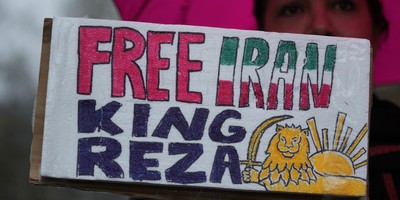On May 7, the 19-page “An Evangelical Manifesto” was released, along with its 29-page study guide. Many good and wonderful people are among the 77 charter signatories. But, I’ve got a bunch of red flags and question marks—not about its theology, its call to piety and integrity, or its encouragement to walk more intimately and consistently in the way of Jesus. That’s all good and really nothing new. My concerns are with what is new: its political agenda.
As with any manifesto, declaration, or statement, I want to know what this means in real world terms. How will this impact the way I live? How will (or should) this change my behavior or influence the behavior of others? What does this mean in terms of specific policies—how will we prioritize and therefore spend limited resources on specific areas of concern? Should I adjust my evangelical priorities?
I’ve got a number of questions for the drafters and signatories.
1) How can evangelicals be too political when only half of them bother to register and vote? Will the “Manifesto” encourage more or less registration and political interest? If less, then who benefits from evangelicals sitting out of the political process?
2) If evangelicals should be in the middle between the political left and right, can you explain your middle ground position on such vital issues as, partial birth abortion, abortion on demand, the ordination of gay clergy, gay marriage, gay curricula in public schools, hate crimes legislation targeting Christians and the many attacks on religious liberty and free speech attempting to censor Christians? For these issues, how can there be an uncertain, moderate middle ground? You’re either for it or against it. I believe being in the middle means you’re too weak to fight.
Recommended
3) What are the names of those on the left and the right you’re seeking to disassociate with? Who are these “liberal revisionists” and “fundamentalists” you’re warning us about? Many of you are pastors and therefore should protect your flocks—name names.
4) How should we prioritize our policy preferences? As evangelicals, what could possibly trump the right to life and the preservation of marriage and the family? I know of no one on the “religious right” that advocates only caring about these issues to the exclusion of hunger, poverty, disease and the environment. It’s both, not either-or. It’s a question of how to distribute precious financial resources. If the “religious right” is spending too much time and energy on life and marriage, then make clear recommendations as to how we should be better allocating our resources. If you want to “care more” by increasing foreign and domestic spending, then tell us how high you want to raise our taxes to fund your policy preferences, and let us decide if we too share your priorities.
5) The Manifesto says (p. 13) that evangelicals should be “never completely equated with any party, partisan ideology, economic system, class, tribe, or national identity.” I agree. But, shouldn’t evangelicals support those political parties and economic systems that agree with our core values and reject those that do not? Right now in America, the Republican Party is still pro-life and pro-marriage while the Democratic Party is for abortion and for gay marriage. In addition, who has done more in the fight against AIDS than the current Republican administration?
And, regarding economic systems, do you see moral equivalence between capitalism, socialism and communism? If so, how? If the United States is not the best expression of the Christian worldview of any government in the world, what country better exemplifies and is more deserving of every evangelical’s support right now than the United States? Isn’t the best thing for the third world to embrace Christianity, representative government, free markets and pluralism? If not, what should we be doing?
There’s nothing new about the “Manifesto” in terms of religion. What is new is the political agenda the drafters have been working on for the past three years to dilute the evangelical vote by moving pro-life, pro-family Christians away from the Republican Party. The claim “we are not political” is itself political, giving the impression a believer is on higher moral ground to be apolitical and “above it all.”
I totally disagree. Politics is theology applied. One of the ways we collectively “love our neighbor as our self” is through public policy.
Evangelicals have a moral responsibility to be engaged in politics. Someone’s policy preferences are always advanced through the political process, and if evangelicals abstain from the process, or get their priorities confused, then I know whose political agenda will be advanced.
And, I don’t want them to win.
It would violate my evangelical priorities.

























Join the conversation as a VIP Member